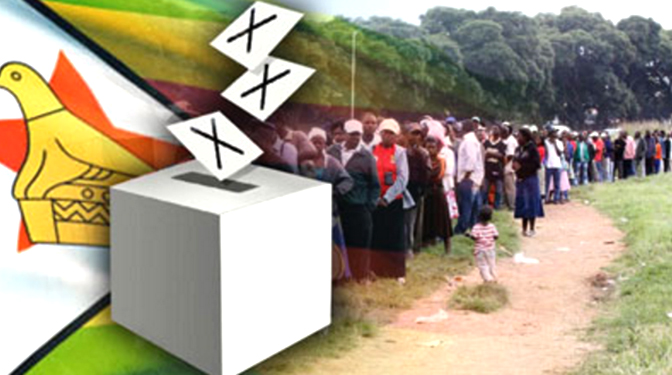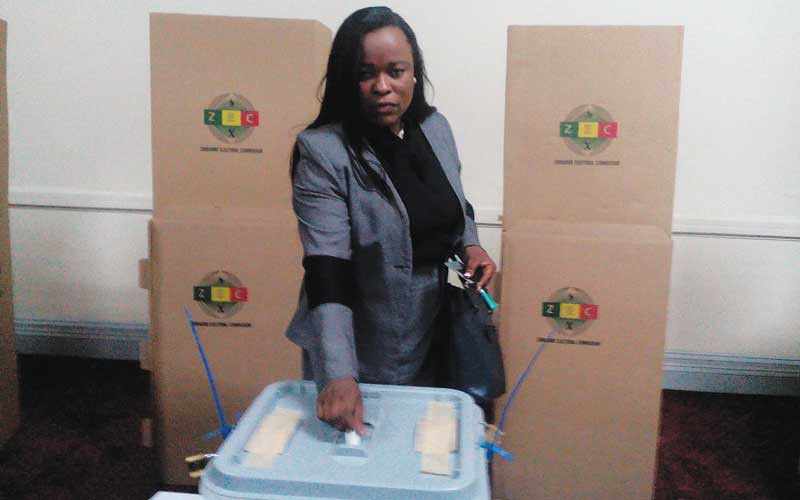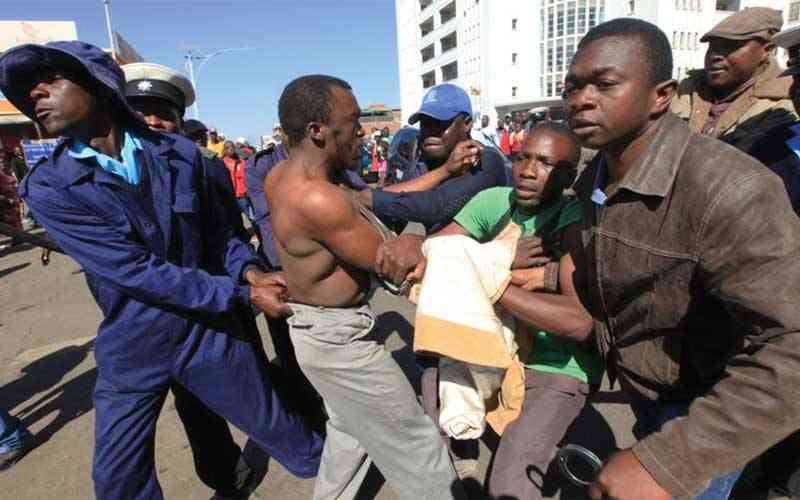
AFTER a two-year suspension of electoral activities, Zimbabwe finally held by-elections which were outstanding from April 2020. On March 26, 2022, the Zimbabwe Electoral Commission (Zec) conducted elections for 145 MPs and councillors. On election day, Citizens in Action Southern Africa (CIASA) used a mixed-method approach to observe the polling processes.
The CIASA observer mission was guided by the country’s Constitution, electoral law as well as regional and international benchmarks for the conduct of free and fair elections in assessing the credibility of the by-elections. CIASA observers were accredited by the electoral commission. CIASA focused its observation in three constituencies Mwenezi East, Chivi South and Dangamvura-Chikanga together with the 4 wards in Masvingo Urban that is wards 3, 4, 5 and 7. Below is a summary of preliminary observations made by CIASA;
Polling station set-up
- The CIASA observer team noted that all polling stations it deployed observers to opened at 7am as stipulated in the electoral regulations. The observers further noted that all citizen observers were allowed access to polling stations and managed to observe all stages of the election.
- CIASA observers did not witness any cases of campaigns within the prescribed 300-metre radius from a polling station.
- No major cases of violence were recorded except in Chivi South.
- At all polling stations visited by CIASA observer materials were available and in sufficient quantities.
- In isolated cases observers reported cases of resistance by some presiding officers in revealing serial numbers of ballot papers upon request by some observers. This was recorded in Chivi South, at Ngundu Catholic polling stations.
- CIASA observed that all ballot boxes and all materials were clearly labelled and comprehensively instructive to the voters.
Recommendations
- Intensive civic and voter education must be extended to both election officials and the general public.
- There is need to raise awareness on the use of the voters roll and there is need to encourage use of the virtual platform.
- There is need to raise awareness among PWDs on the need for them to participate at all levels of development particularly political events like the by-elections. – CIASA
CCC ideology is rooted in the populace THE ruling Zanu PF party tried to derail the people’s hopes by sponsoring a fake party MDC-T led by Douglas Mwonzora.
Zanu PF used the courts and State security agents to impose Mwonzora on the people and take away party headquarters and parliamentary financing to cripple Nelson Chamisa’s then MDC Alliance activities.
After losing the party name, headquarters and financing, Chamisa rebranded to Citizens Coalition for Change (CCC), a new baby which has caused Zanu PF sleepless nights.
CCC has rocked the country’s political arena. Now it has grown stronger.
- Chamisa under fire over US$120K donation
- Mavhunga puts DeMbare into Chibuku quarterfinals
- Pension funds bet on Cabora Bassa oilfields
- Councils defy govt fire tender directive
Keep Reading
At the weekend by-elections, his party pocketed 22 of the 28 parliamentary seats that were up for grabs.
Launched on January 24, 2022, CCC has sent the Zanu PF regime into panic mode.
CCC rallies were massively attended despite it supporters being frustrated by police roadblocks set up to deny citizens a chance to meet the people’s president.
Citizens are making huge sacrifices, walking long distances to attend Chamisa’s rallies.
What we are witnessing today is exactly what our nationalists faced during the war of liberation.
The guerilla fighters were arrested, tortured and killed, but they were not deterred.
Determination had enveloped them. The battle was won and Zimbabwe got independent.
In a way, Zanu PF is perfecting the methods of real struggle for the opposition.
It used the courts and Parliament to deny the people’s party funding. Now people are sponsoring the party, walking long distances to attend party rallies.
Citizens are carrying their food because they don’t expect to be fed at rallies.
Citizens own the party, not the recipient syndrome that killed people’s commitment to the struggle for a democratic Zimbabwe.
Citizens are ready for the new struggle to free themselves from Zanu PF bondage. –Isaac Mupinyuri
Political party funding: What happens now? ZIMBABWE has a law that provides for the funding of political parties. This is consistent with section 67(4) of the Constitution which says there must be such a law.
That law is called the Political Parties (Finance) Act. For a party to qualify for funding, it must have won at least 5% of the total votes cast in a general election. Only two parties qualified in 2018: Zanu PF and MDC Alliance. The money was given to these parties.
After the controversial Supreme Court judgment in March 2020 things changed and the government began to allocate that money to the MDC-T under Thokozani Khupe and later under Douglas Mwonzora. That diversion was meant to financially cripple the legitimate opposition.
So what if there are by-elections and the composition of Parliament changes? Section 3(4) states that there shall be adjustments to the amounts payable to political parties having regard to changes in the total votes cast as a result of the by-elections.
I’m not sure that this provision has ever been invoked in the past to make changes to funding, but if it has government will just follow precedent. If not, however, a new precedent will have to be set following these by-elections. A number of factors will come into play.
First, the MDC-T has now lost title to all the votes that were won in the affected constituencies in 2018. These votes now belong to the Citizens Coalition for Change (CCC). The next question is whether this loss affects the MDC-T’s ability to meet the 5% threshold to qualify for funding.
In this regard, it matters that the higher voter turnout in 2018 contributed to the MDC-T’s ability to meet the threshold. In any event, the loss of those high numbers will significantly reduce its share of the political funding since funding is tied to the number of votes.
As for the CCC, qualification for funding also depends on meeting the 5% threshold. The problem I foresee is the low voter turnout in the by-elections which means the total votes might not make a big impact on the total number of votes cast at the general election in 2018
But this is a matter that I leave to those whose minds are suitably tuned to figures. What I have given here is the legal formula. You guys can now exercise your able mathematical minds but I imagine you would need the entire dataset of results for 2018 and the by-elections.
So in short, the answer is yes, there can be readjustments to political party funding as a result of the by-elections and while I don’t know of a precedent, there is room to chart a new one based on the current set of circumstances. –Alex Tawanda Magaisa











